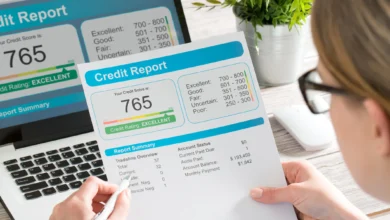Budgeting Isn’t Boring: Why Smart Money Moves Right After Graduation Set You Free Later

You’ve just tossed your cap in the air, hugged your friends, and maybe cried a little. You’re standing on the edge of real life, diploma in hand, and for the first time in forever — no more school bells, no more student discounts, and no more “I’ll deal with that later.”
Now comes the thrilling, terrifying, glorious mess of adulthood. And whether you’re moving back in with your parents, signing a lease, or prepping for job interviews — there’s one word you can’t avoid: money.
Budgeting. Financing. Saving. Investing.
Sounds dry?
Stick with me. This article isn’t about becoming a spreadsheet nerd (unless you want to be). It’s about reclaiming control, avoiding unnecessary stress, and building a life where you’re free to say yes to the things that matter — without debt dragging behind you like a ball and chain.
Why Budgeting Isn’t About Sacrifice — It’s About Power
When most people hear the word budget, they think restrictions.
No coffee. No nights out. No fun.
But that’s a myth. A budget isn’t a punishment — it’s a permission slip.
When you create a plan for your money, you’re not saying “no” to fun — you’re saying yes to what you truly value.
Want to travel? Cool. Budget for it.
Dream of starting your own business? Let’s carve out a path.
Need to pay off student loans? There’s a strategy for that.
Budgeting doesn’t shrink your world — it expands your possibilities.
The First Job Paycheck: What to Do (and Not Do)
Getting your first full-time paycheck is exciting — and a little deceiving.
Let’s say your offer letter shows a promising number. Sounds amazing, right? But after taxes, insurance, and other deductions… the actual amount that lands in your account is a lot less.
Here’s the golden rule: don’t spend money like you’re earning your gross salary.
Instead, base your budget on what actually hits your bank account.
The 50/30/20 Rule (With a Twist)
Here’s a super beginner-friendly way to split your income:
- 50% Needs – rent, groceries, utilities, transportation
- 30% Wants – dining out, subscriptions, fun stuff
- 20% Savings/Debt – emergency fund, loan repayments, investments
Can’t do the full 20% right now? That’s okay. Start with 5%. Then 10%. The key is building the habit, not being perfect from day one.
Real-Life Example: Meet Lukas
Lukas graduated with a degree in communications. He landed a junior marketing job and was thrilled with his first salary.
Here’s how he set up his first budget:
- Around half went to rent and bills
- A smaller portion covered groceries and public transport
- Another chunk was for going out with friends, streaming services, and his gym membership
- A small fixed amount was put aside for loan repayments
- The rest went into savings and a little “just in case” fund
He used a simple app (like You Need a Budget or a digital banking tool and checked in every week. No fancy tools, just consistency.
After a year, Lukas had built an emergency fund, chipped away at his student loans, and even managed a spontaneous trip with friends — all without credit card debt.
That’s the power of a plan.
Things Nobody Tells You, But Should
Let’s get real. Most schools don’t teach this stuff. So here are a few things you might not hear often enough — but will save your butt:
1. Debt isn’t evil, but ignorance is
Student loans? Not the end of the world.
Credit cards? Fine — if you pay them off every month.
The key is knowing what you owe, the interest rate, and the repayment plan.
Set reminders. Ask questions. Don’t bury your head in the sand.
2. Lifestyle creep is sneaky
You get a raise — yay!
Then you move to a fancier apartment, upgrade your phone, and suddenly… you’re still broke.
Avoid this trap. Instead of inflating your lifestyle with every raise, boost your savings and investments. Give Future You a high five.
3. Emergency funds aren’t optional
Life happens. Your laptop dies. You need dental work. Or (let’s be honest) you just need a break.
An emergency fund = peace of mind.
Start with a goal of covering a couple of basic monthly expenses. Then work up to three to six months’ worth if possible.
Budgeting Tools That Don’t Suck
- YNAB (You Need a Budget) – great for intentional planning
- Revolut or Monzo – banking + budgeting in one app
- Google Sheets – free, customizable, and oddly satisfying
- PocketGuard or Mint – simple overviews of where your money’s going
Pick one that matches your personality. The best tool is the one you’ll actually use.
Final Thoughts: Be Gentle With Yourself
Budgeting is a skill. And like any skill, it takes time. You’ll make mistakes. You’ll overspend. You’ll forget to track for a month. That’s okay.
Don’t let one setback throw you off.
Forgive yourself. Learn. Adjust. Move on.
You’re not behind. You’re building.
And every time you choose to care about your finances — even just a little — you’re giving yourself the gift of freedom.
One Last Thing: You Don’t Need to Be Rich to Feel Rich
Here’s the truth: You don’t need a six-figure salary to feel secure.
You don’t need a big house or luxury stuff.
You just need a plan. A bit of discipline. And the belief that you’re worth the effort.
Budgeting isn’t the end of freedom — it’s the beginning.
And you? You’ve got this.




